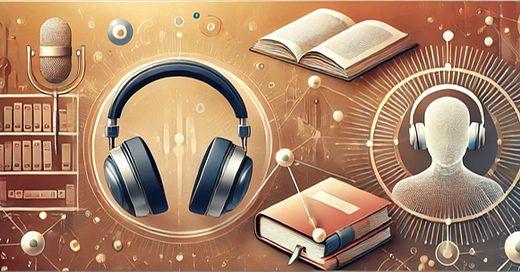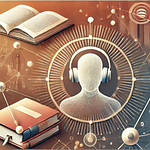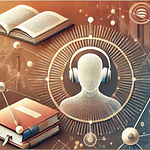Top Takeaways Of The Week
Podcast Notes Book Collection: 2024 Edition (150+ books and counting…)
Business: When Helping Hurts by Steve Corbett and Brian Fikkert
One of the best books about philanthropy
Source: Brent Beshore’s recommendation to Shane Parrish (PN)
Economics: The Great Wave: Price Revolutions and the Rhythm of History by David Hacket Fischer
Explores the recurring cycles of price inflation throughout history, connecting economic trends to broader social and cultural changes
Source: Rudyard Lynch’s recommendation to Tom Bilyeu (PN)
Entrepreneurship: Mastery by Robert Greene
The value of mastering a skill set
Source: Sam Parr’s recommendation to Andrew Wilkinson (PN)
Investing: Poor Charlie’s Almanack by Charlie Munger
Charlie Munger understood incentives and human psychology, but never used that knowledge to manipulate others
Source: Warren Buffett’s recommendation to shareholders (PN)
Productivity: The Effective Executive: The Definitive Guide to Getting The Right Things Done by Peter Drucker, The 7 Habits of Highly Effective People by Stephen Covey, and Getting Things Done: The Art of Stress-Free Productivity by David Allen
Three books that embody the evolution of productivity
Source: Cal Newport recommendation to Chris Williamson (PN)
Leadership: The Hard Thing About Hard Things by Ben Horowitz
Great lessons about running a business and being a leader
Source: Marc Andreessen’s recommendation to Rick Rubin (PN)
Motivation: Michael Jordan: The Life by Roland Lazenby
The key insights into Michael Jordan’s competitive spirit and how it made him the greatest basketball player of all time
Source: Ben Wilson book review (PN)
Seeking Truth: The Beginning of Infinity and The Fabric of Reality by David Deutsch
Naval Ravikant praises David’s work, considering him the smartest human alive
Source: Naval Ravikant and Niklas Anzinger in discussion (PN)
Psychology: …
“how to know what’s true” edition: “Free markets are also a source of truth-seeking. For example, if I think Alphabet is a great stock and I buy it, but I turn out to be wrong, then the truth of the market will punish me as the feedback comes in, and I will lose my money.”
A group is not a truth-seeking entity: “Individuals can seek truth and then, based on that, they can choose to cooperate with others for limited periods of time to effectuate that truth or to have something come out of it.”
Are we running out of resources? Nope. “There’s not a single resource you could point to that was a resource in the classic commodity sense that had any real value where we ran out in some harmful way.”
“If climate change is an issue—and it’s hard to discuss because it’s become so politicized—we can carbon capture out of the environment.”
“Whether it’s nuclear fusion, rocketry, immortality, fighting viruses, or computing, almost all the innovation of the last 50 years has come in the unregulated industries.”
This is what AGI people get wrong: “There’s no intelligence that can fundamentally understand something humans can’t understand.”
Everybody wants the latest and greatest of everything: “Would you even go back 10 years and lose out on all the medicines, computing, knowledge, and travel we’ve invented? Absolutely not. I wouldn’t even go back to the iPhone 14.”
Why You Have Advantages Over Elon and Bezos:
You probably have more time to go to the gym than they do
They have the same iPhone you do
They might eat slightly better food, but it’s basically the same
Popper’s concept of falsifiability is key: Statements that can’t be disproven are meaningless, e.g., “we live in a simulation.”
The free will debate is similarly non-falsifiable and unproductive
There’s no such thing as misinformation: “Your information is my misinformation; my information is your misinformation.”
Explaining The Silk Road – History102 With Rudyard Lynch and Erik Torenberg
“Totalitarianism is a very feminine attempt to gain total order over your life. It’s basically asking for daddy state to peg you harder.” – Rudyard Lynch
“The state is at best a dildo. It can never be a real penis, and thus it will never really satisfy you.” – Rudyard
What Woke Really Is: Wokeness is one of six different types of totalitarian movements in history and it perfectly fits the definition of totalitarianism
What Was the Silk Road: The Silk Road was an emergent phenomenon that developed over thousands of years due to discrete connections between the four major Eurasian civilizations, which were Europe, the Middle East (Islam), India, and China
The 3 Peaks of the Silk Road:
First peak: Roman-Han Dynasty Golden Age
Second peak: The Islamic Golden Age
Third peak: The Mongol Empire
A paradox of the Silk Road: As the system integrates closer, it shatters because it integrates too much
The convergence of disease pools from around the world; in one instance, one-third of Eurasia’s population was killed by a plague as a result of disease pools converging
Fracincense Was a Legit Luxury Item: The Silk Road was mostly luxury trading, except for the late medieval period in the Indian Ocean Silk Road
Arabia exported horses, frankincense, and myrrh
China was completely addicted to Arabian frankincense; this was one of the most significant trading nodes of the 11th century!
The Europeans Killed the Silk Road (That in the Mongols Killing Everyone): The Europeans entered the Indian Ocean trading system in the early 1500s by sailing around the bottom of Africa
First the Portuguese, then the Dutch
The Portuguese seized control of the entire Indian Ocean system in a ten-year period
The land routes of the Silk Road eventually died out because the oceanic trade routes were better
Mongolian Death Toll: The Mongols killed close to 100 million people in the pre-industrial world
There are ways to know what’s true and what’s not true: “Reading about physics and understanding that there are laws that tell you how things work gave me a tremendous sense of order and power.” – Bernardo
There are two things our brains weren’t made by evolution to understand intuitively: relativity and quantum physics
Bernardo explains the basics of relativity:
Einstein discovered that the speed of light is constant, no matter how fast you’re moving relative to it
This makes simultaneity (two events happening at the same time) relative
For example, Andrew and Bernardo might agree it’s 1:10 now, but if one of them moves very fast, their clock would show a different time
Chaos Theory: Bernardo was one of the discoverers of chaos in several physical systems, a tiny difference in initial conditions can take you to very different outcomes
“In classical mechanics, chaos is all about sensitivity to initial conditions.” – Bernardo
Chaos exists in almost every physical system, even in neurons in the brain!
Signup at Podcastnotes.org to unlock the full notes and Premium Newsletter













Share this post